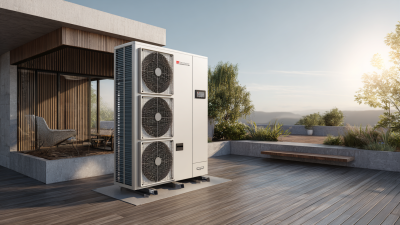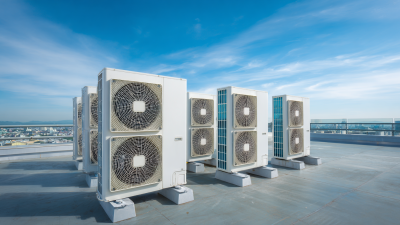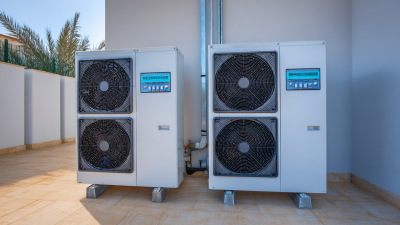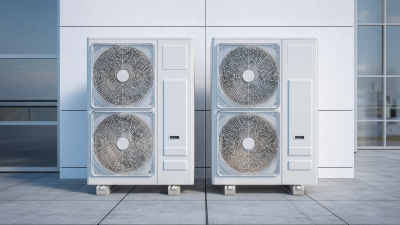Leave Your Message
In today's pursuit of energy efficiency, homeowners are increasingly turning to innovative technologies that not only reduce their carbon footprint but also offer substantial savings on energy bills. Among these technologies, the Heat Pump Heater emerges as a front-runner, with data from the U.S. Department of Energy indicating that these systems can provide more than three times the amount of heating energy they consume. This remarkable efficiency positions Heat Pump Heaters not just as an alternative, but as a wisdom investment for those looking to optimize their home energy consumption.

Industry experts recognize the transformative potential of Heat Pump Heaters. According to Dr. Emily Roberts, a renowned energy efficiency consultant, "Investing in a Heat Pump Heater is not only a smart choice for reducing energy costs but also a vital step towards a more sustainable future." These systems utilize the ambient air or ground temperatures, enabling them to deliver heating and cooling more efficiently than traditional heating methods. As energy prices continue to rise, the relevance of deploying such technology becomes undeniable, making the Heat Pump Heater an essential choice in modern home energy solutions.
As we explore the top five reasons for choosing a Heat Pump Heater, it becomes clear how this innovative approach can significantly enhance home energy efficiency.
Heat pump heaters are an excellent choice for achieving year-round comfort in your home while maximizing energy efficiency. These systems operate by transferring heat instead of generating it, which allows them to provide both heating and cooling with minimal energy consumption. In colder months, they extract heat from the outside environment and transfer it indoors, while in hotter months, the process reverses, effectively cooling your living spaces. This versatility ensures a consistent and pleasant indoor climate throughout the year.
The benefits of heat pump heaters extend beyond their energy-efficient operation. They often lead to significant cost savings on utility bills, as they utilize renewable energy from the environment. Additionally, heat pumps have a lower carbon footprint compared to traditional heating systems, making them a more environmentally friendly option.
Furthermore, modern heat pumps come equipped with advanced features like programmable thermostats and smart technology, allowing homeowners to customize their heating and cooling preferences easily. By choosing a heat pump heater, you not only enhance your home's comfort but also contribute to a greener planet.
When it comes to enhancing home energy efficiency, heat pumps stand out as a game changer. Unlike traditional heating systems, heat pumps efficiently transfer heat rather than generate it, leading to significant energy savings. A homeowner recently experienced this firsthand when exploring options for a new HVAC system. They were startled by the wide range of quotes received, underscoring the importance of selecting the right system for optimal performance.
Heat pumps not only provide effective heating during winter but also double as cooling systems in the summer, making them a versatile choice. Their ability to draw heat from the outside air, even in colder months, allows homeowners to reduce their reliance on fossil fuels. As energy costs continue to rise, investing in heat pump technology can lead to consistent savings, lowering monthly utility bills while contributing to a more sustainable environment. The transition to heat pumps represents not just a smart investment but also a significant step toward achieving long-term energy efficiency in homes.
| Criterion | Heat Pump Heater | Traditional Heating Systems |
|---|---|---|
| Energy Efficiency Rating | 3.0 - 5.0 COP | 0.8 - 1.2 COP |
| Average Annual Cost | $800 - $1,200 | $1,200 - $2,000 |
| Lifespan | 15 - 25 years | 10 - 20 years |
| Installation Complexity | Moderate | Simple |
| Environmental Impact | Low (renewable energy) | High (fossil fuels) |
| Heating and Cooling Capability | Yes | No (heating only) |
 Heat pump heaters are emerging as a crucial technology in the quest for energy efficiency and reducing carbon footprints in homes. According to recent studies, the decarbonization of heating and cooling systems is vital, significantly contributing to greenhouse gas emission reductions. For instance, the European Union successfully achieved a 20% reduction in emissions by 2020 compared to 1990 levels, and it is imperative to maintain such momentum to meet future climate targets. Heat pumps, especially when powered by renewable energy, can drastically decrease the reliance on fossil fuels for home heating, which is a considerable contributor to household carbon emissions.
Heat pump heaters are emerging as a crucial technology in the quest for energy efficiency and reducing carbon footprints in homes. According to recent studies, the decarbonization of heating and cooling systems is vital, significantly contributing to greenhouse gas emission reductions. For instance, the European Union successfully achieved a 20% reduction in emissions by 2020 compared to 1990 levels, and it is imperative to maintain such momentum to meet future climate targets. Heat pumps, especially when powered by renewable energy, can drastically decrease the reliance on fossil fuels for home heating, which is a considerable contributor to household carbon emissions.
Furthermore, the environmental impact of heat pumps is being scrutinized through life cycle assessments, revealing their potential to enhance energy sustainability. Research indicates that in proper locations and with optimal installation, heat pumps can lower home emissions significantly. They not only provide efficient heating and cooling but also contribute to savings on energy costs. A recent study highlights that homes equipped with heat pumps can realize reductions in greenhouse gas emissions by up to 50%, illustrating their pivotal role in combating climate change. These advancements underscore the importance of integrating heat pump systems into residential energy strategies to foster a sustainable future.
When considering heat pump systems for your home, understanding the installation and maintenance process is crucial for achieving optimal energy efficiency. Generally, installing a heat pump involves selecting the right type for your needs—air-source or ground-source—and may require professional assessment of your home's insulation and energy requirements. The installation process typically includes placing the heat pump unit and connecting it to your home’s ductwork. Homeowners can expect this process to take a few days depending on the complexity and the existing infrastructure.
Maintenance is another important aspect of heat pump systems that contributes to their longevity and efficiency. Regular upkeep can include cleaning or replacing filters, checking refrigerant levels, and inspecting ducts for leaks. Most experts recommend annual servicing to ensure that the system operates at peak performance and to prevent costly repairs down the line. Understanding these aspects of installation and maintenance will help homeowners make informed decisions about integrating heat pumps into their energy-efficient practices.
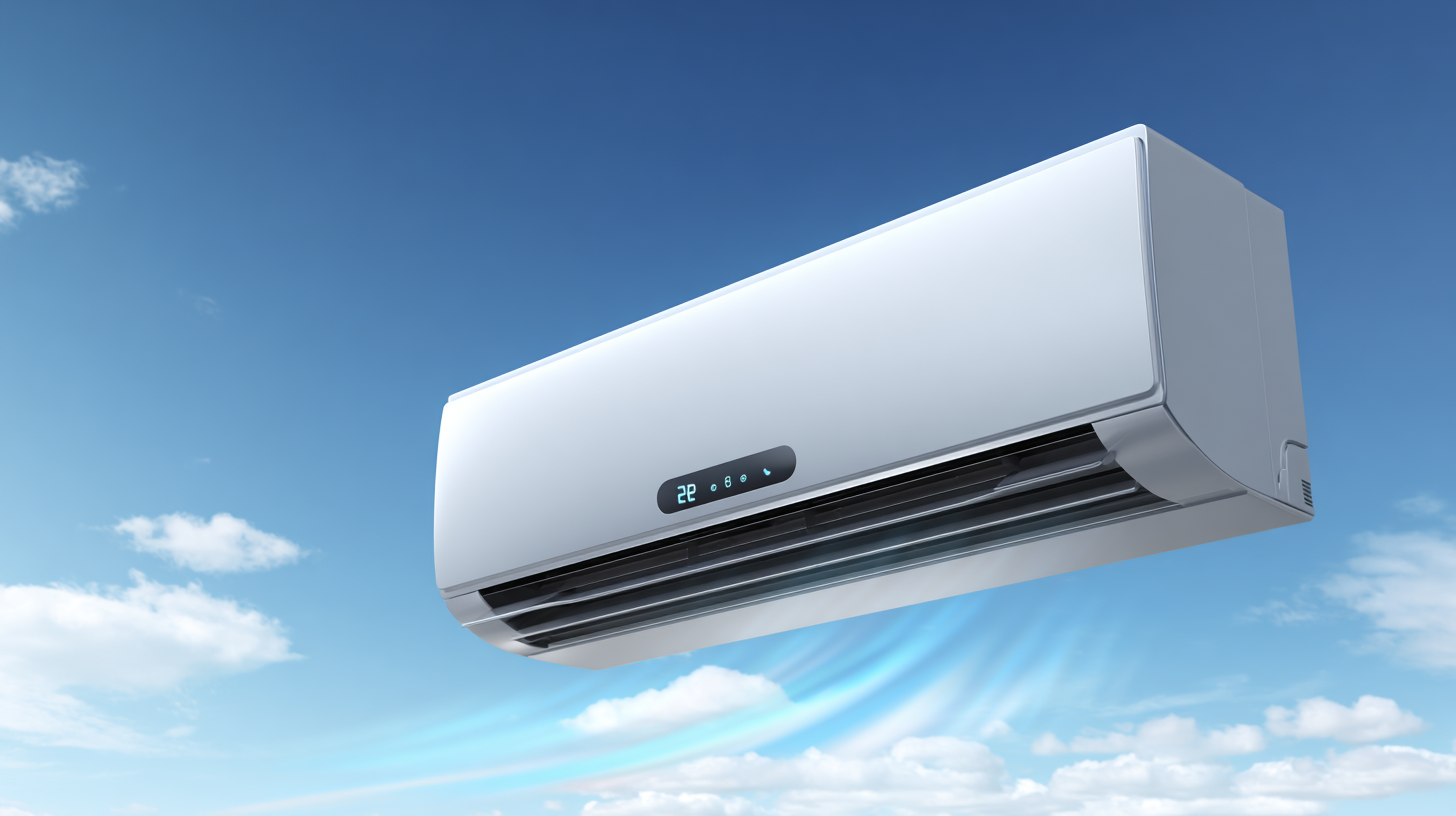
Heat pump technology has evolved significantly in recent years, offering homeowners an innovative solution to enhance energy efficiency. By utilizing ambient air, ground, or water sources, heat pumps transfer heat instead of generating it, which significantly reduces energy consumption. Modern designs incorporate advanced components like variable-speed compressors and smart thermostats, enabling precise temperature control and minimizing energy waste.
Moreover, the integration of renewable energy sources with heat pump systems has marked a remarkable advancement in household energy solutions. Some heat pumps now feature solar energy compatibility, allowing homeowners to harness solar power for heating and cooling purposes. This synergy not only reduces reliance on fossil fuels but also leads to substantial cost savings on energy bills. The continual improvements in heat pump technology represent a sustainable path towards achieving greater energy efficiency and reducing the environmental footprint of residential heating and cooling systems.
